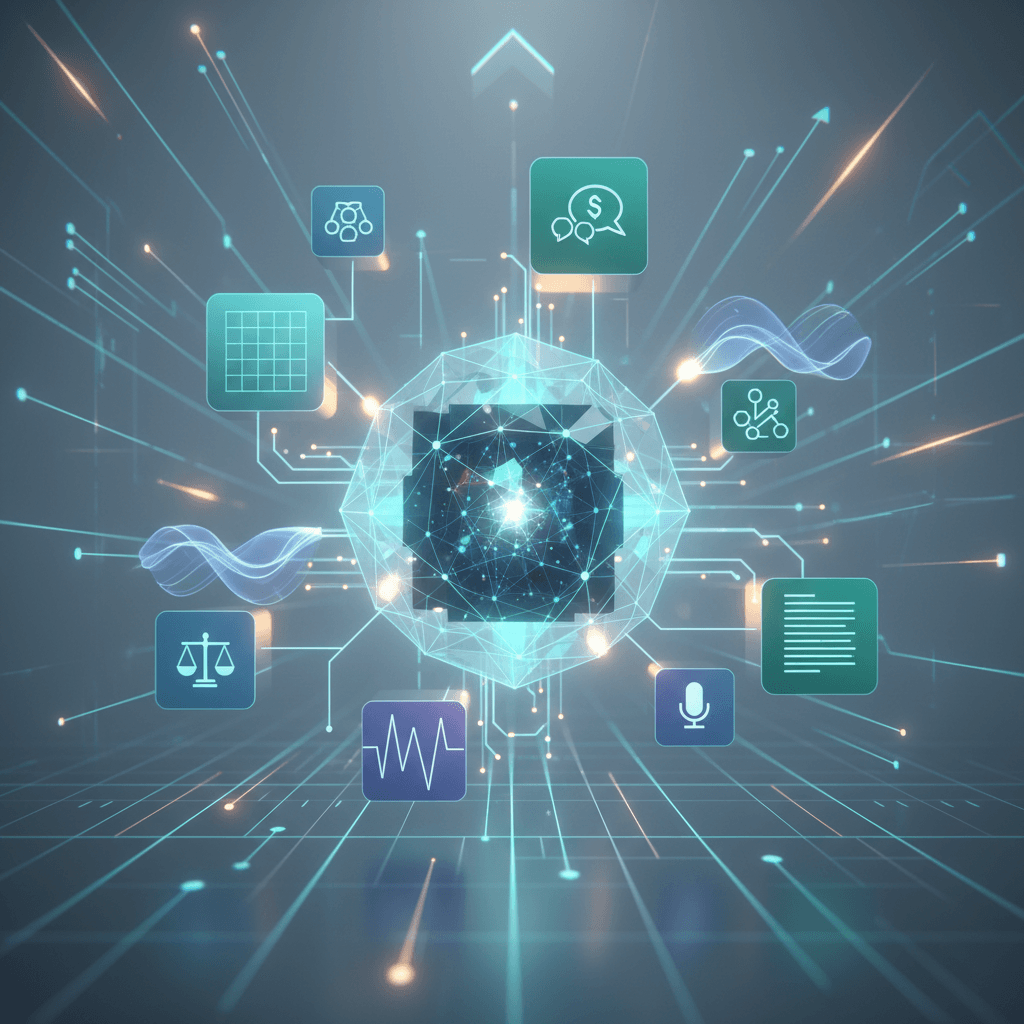Anthropic Launches 'Skills,' Turning Claude into Specialized Business Agents
Anthropic's "Skills" transform Claude into specialized, adaptable agents, creating a persistent knowledge base for consistent enterprise workflows.
October 16, 2025

In a significant move to make its artificial intelligence more adept in professional environments, Anthropic has launched a new feature called "Skills" for its AI assistant, Claude. This system is designed to allow Claude to move beyond generic responses and perform specialized, complex tasks by dynamically accessing curated sets of instructions and resources. The introduction of Skills represents a direct effort to tackle a core challenge in enterprise AI adoption: the considerable time and effort required to repeatedly provide context and specific instructions for recurring business workflows. By enabling users to package procedural knowledge into reusable modules, Anthropic aims to transform its general-purpose AI into a team of specialized agents, capable of executing tasks with greater consistency and domain-specific expertise. This development signals a clear strategic focus on workplace utility, aiming to bridge the gap between the potential of AI and its practical, everyday application in business operations.
The core concept behind Skills is a departure from the traditional, conversational model of interacting with AI, where each new task often requires starting from a blank slate. Instead, Skills are organized into topic-based folders that contain instructions, scripts, and other resources that Claude can discover and load as needed.[1][2] A user can create a Skill for a specific function, such as analyzing financial data in a spreadsheet, ensuring marketing copy adheres to brand guidelines, or generating legal documents with the correct clauses.[3][4] When a user presents Claude with a relevant task, the AI can automatically identify and utilize the appropriate Skill, effectively equipping itself with the necessary expertise for the job.[2] This process is akin to providing a new employee with an onboarding guide, giving the AI a persistent, organization-specific knowledge base that improves over time.[5][2] These Skills are designed to be composable, meaning they can be stacked and combined to handle more complex, multi-step workflows, and they are portable across Anthropic's ecosystem, including Claude.ai, Claude Code, and its APIs.[1][6] This modular approach is intended to eliminate the repetitive cycle of prompt engineering that has become a significant hurdle for many enterprise users, making the AI a more efficient and integrated part of their daily work.[5]
For businesses and professional users, the implications of this feature are substantial. The primary benefit is a significant boost in productivity and consistency.[3] By creating Skills for routine tasks, organizations can ensure that Claude's output consistently meets specific standards, whether it's maintaining a certain tone in communications or correctly formatting data for analysis.[3][4] Early adopters of the technology, including major companies like Box, Canva, and Rakuten, are already testing the feature to streamline their internal processes.[5] Cloud storage company Box is using Skills for workflow automation, while the design platform Canva is leveraging them to enhance creative processes.[5] This system allows users to update a Skill once—for example, with new brand guidelines—and have that change instantly reflected in all future tasks performed by Claude, saving considerable time and effort.[3] This ability to create and share specialized knowledge transforms Claude from a general assistant into a customized tool tailored to the unique procedural needs of an organization, directly addressing the common enterprise frustration of generic AI outputs that require extensive manual refinement.[5] The feature is available to Pro, Max, Team, and Enterprise users, underscoring its focus on professional and business applications.[3]
The launch of Skills also intensifies the competitive landscape of the AI industry, placing Anthropic in more direct competition with rivals like OpenAI.[5] The move toward creating customizable, agent-like AI systems is a clear trend, with major players recognizing that the future of workplace AI lies in its ability to adapt to specific business contexts rather than offering a one-size-fits-all solution.[5] This focus on building specialized agents with persistent knowledge is seen as a critical step in evolving AI from a novelty to an indispensable enterprise tool.[2] However, this advanced capability also introduces new security considerations. Anthropic advises users to be cautious and thoroughly audit Skills installed from less-trusted sources, as malicious instructions or code could potentially introduce vulnerabilities or lead to unintended actions.[2] Ultimately, the success of Skills will depend on its ability to deliver reliable, context-aware performance that justifies the investment for businesses.[5] It represents a strategic bet that the path to widespread AI adoption is not just through building more powerful general models, but through creating frameworks that allow users to easily and effectively embed their own specialized expertise into the AI itself.[5][2]
In conclusion, Anthropic's introduction of Skills for Claude is a pivotal development in the push to make AI a more practical and powerful tool for the modern workplace. By allowing users to create reusable, specialized instruction sets, Anthropic is directly addressing the limitations of general-purpose AI assistants and the tedious nature of repetitive prompt engineering. This feature empowers organizations to build a customized and persistent knowledge base for Claude, ensuring consistency and efficiency across a wide range of business tasks. As early adopters begin to integrate this new capability into their workflows, the broader AI industry will be watching closely. The success of modular, skill-based systems like this could very well define the next phase of AI, shifting the focus from raw conversational ability to the creation of specialized, adaptable AI agents that can truly augment the human workforce and become deeply embedded in the fabric of enterprise operations.